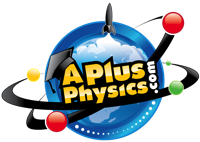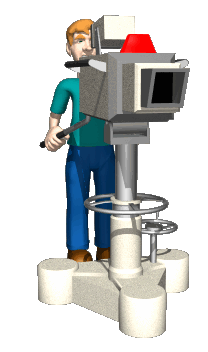ANNOUNCEMENTS
- The University of Rochester Laser Energetics Lab is looking for talented high school juniors for their Laser Energetics Lab summer internship program.
- The good folks at Syracuse Universityare offering a three week QuarkNet course this summer, and they would like to get the word out about it. Dr. Steve Blusk (a B-meson researcher) is heading up the endeavor, with help from several other professors, including an expert in neutrino research. Ranald Bleakley (Weedsport High School) and Joshua Buchman (Fayetteville-Manlius High School) have been working with them all to help make sure that the course will be extremely beneficial to high school teachers. The program is likely to be offered for the next several summers, so it would be great to let people know this will be available.
Specifics: SyracuseQuarkNetSummerProgram.pdf
SyracuseQuarkNetSummerProgram.pdf
Three week course (6/25-7/13)
The course will involve lectures on particle physics and particle physics research, lots of Q and A, fantastic lab experiences related to particle physics research, and a three-day detector seminar by Tom Jordan from QuarkNet.
$1500 stipend for participants
(No housing or travel allowance, though, that we know about)
- Thanks to the RIT Physics Department for hosting RAPTOR.
- Steve Whitman is working with SUNY Brockport on programs for high school physics teachers to implement Interactive Physics effectively in their classrooms.
- STANYS-CWS is also working to network and build collaboration. Get involved!
PROGRAM
Dan Fullerton (Irondequoit High School Physics) gave a presentation on a developing outreach program at RIT intent on Integrating Semiconductor and Microelectronics in High School Science Courses. Effort is being developed by Dan Fullerton, Mike Jackson, and Tom Schulte. Course materials are available on APlusPhysics.com.![]() RAPTOR-MicroE-STEP-rev3.pdf
RAPTOR-MicroE-STEP-rev3.pdf
Link to Semiconductor Technology Enrichment Program (STEP) Overview
Link to Microelectronics Content Online (hardcopy version here Honors Physics Essentials)
Dr. Steven Manly (University of Rochester and author of Visions of the Multiverse and Relativity and Quantum Physics for Beginners) presented on a series of physics applets useful for helping students visualize concepts:
Coulomb
Electric field
Electric flux
Charged particle in magnetic field
Magnetic field surrounding wire(s)
Electromagnetic plane wave
Polarization in electromagnetic plane waves
He also shared information about the school’s PREP program, then went into his technical presentation titled The Manly Man’s Guide to the Universe: The intimate relationship between the VERY big and the VERY small.
The U of R PREP Program (Pre-college Experience in Physics) is a free three-week summer program for 9th and 10th grade women without previous physics experience. The program runs weekdays from 9 am to 3 p.m., featuring speakers, demonstrations, tours, lectures, projects, and social activities. The program is designed to be fun and enriching, and fosters opportunities for attendees to build a peer group (and is not designed as an AP-B prep program). More information is available by contacting Connie Jones .
The Manly Man’s Guide to the Universe: The Intimate Relationship Between the VERY Big and the VERY Small
Particle Physics, The Standard Model, Cosmology, the Big Bang, and how they tie together.
Resources:
Particle Physics Information Sites:
W Map Animations
SHARING AND DEMONSTRATIONS
ImagineRIT May 5 — demonstrations and activities across campus.
Next RAPTOR meeting May 12 from 9 am to noon at RIT (Science Bldg, 4th Floor).
Brendan Noon demonstrated homemade electroscopes from cans and styrofoam cups as well as activities to build student inquiry and explorationdeveloped by Orlando Marrero ![]() Electrostatics Starter.doc
Electrostatics Starter.doc


